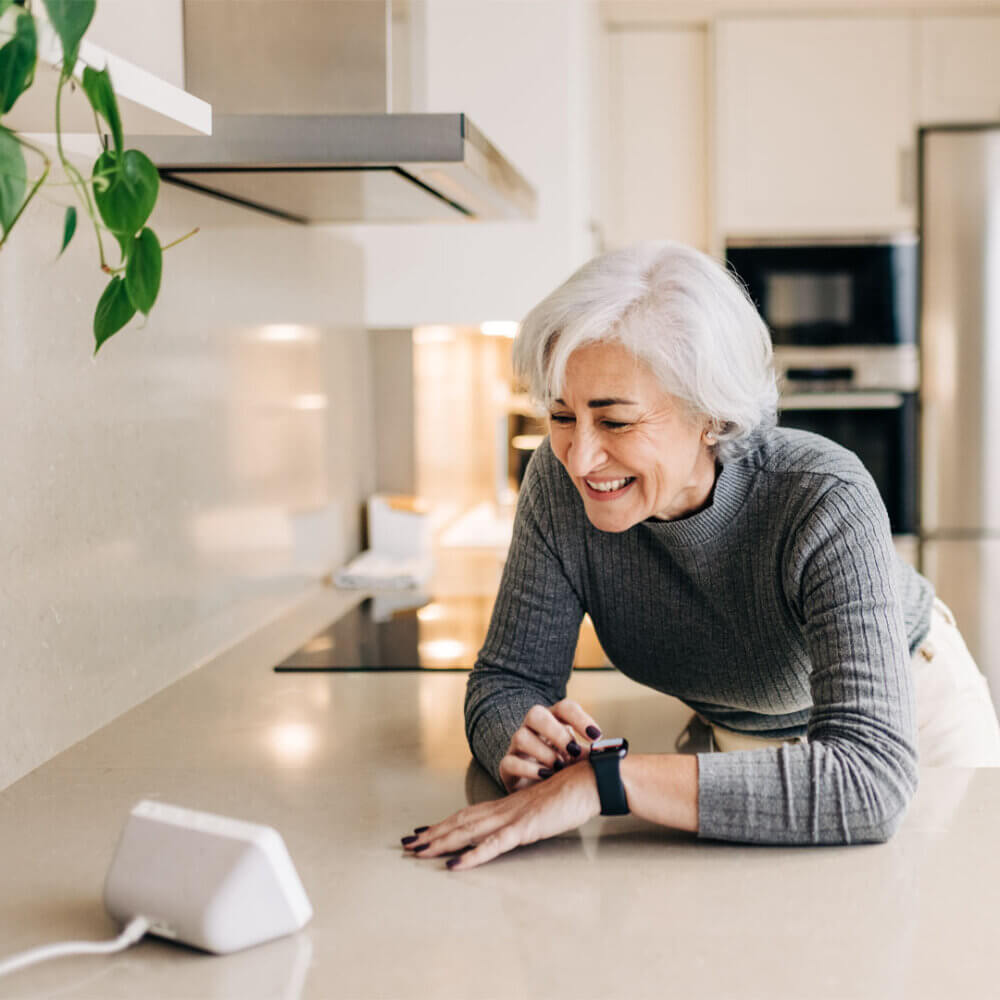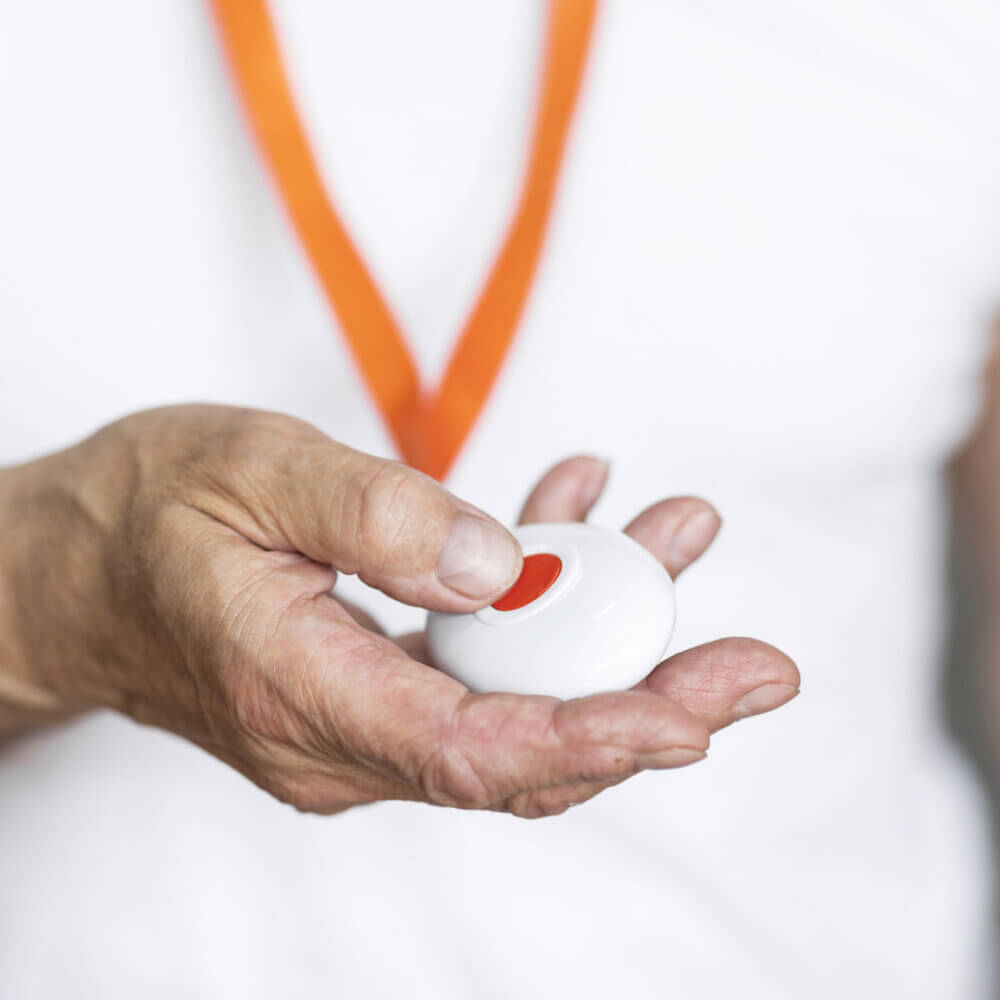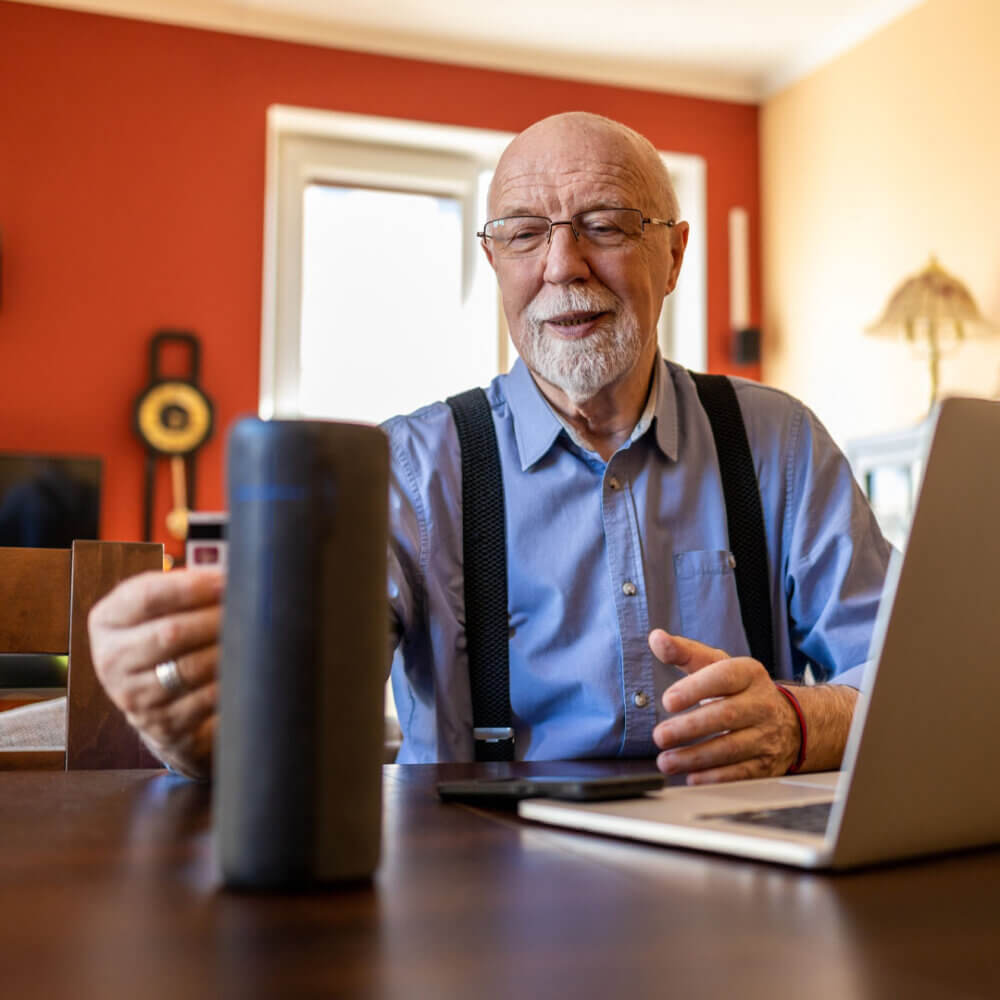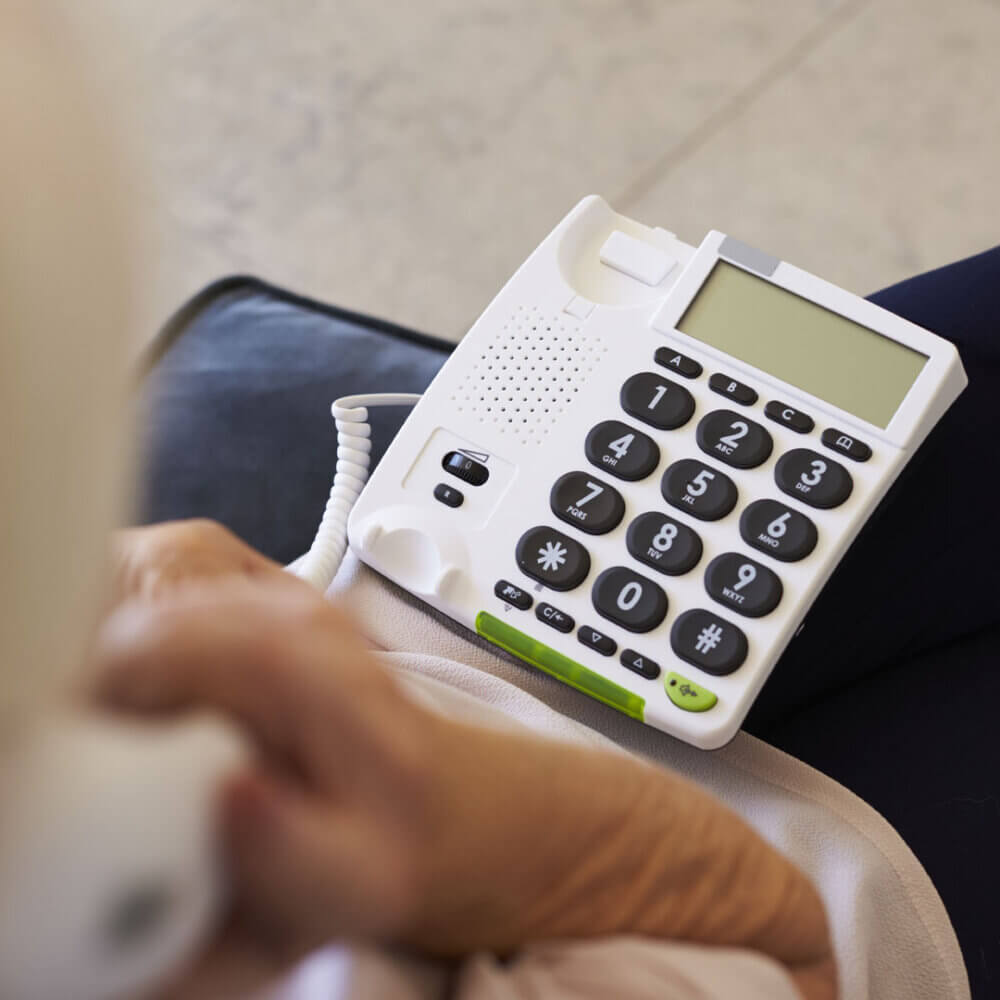How assistive technology keeps seniors independent for longer
Join us as we discuss the types of senior tech you might need to keep Mum and Dad independent for longer and where to get help.

What is assistive technology?
Assistive technology, or assistive aids, as they are sometimes called, are devices, software or equipment that help seniors or people with disabilities perform daily tasks more efficiently and comfortably.
There is a wide range of technology on offer, from:
- Mobility aids – Things like wheelchairs, walkers, canes, crutches or prosthetic limbs that help individuals with mobility impairments move around more easily.
- Communication aids – These include devices like speech-generating devices, text-to-speech software, and alternative and augmentative communication (AAC) devices that help individuals with communication impairments express themselves.
- Hearing aids – Devices that help individuals with hearing loss amplify sounds and improve their hearing ability.
- Visual aids – Things like magnifying glasses, screen readers, and braille displays that help individuals with visual impairments see and read better.
- Home automation systems – Allow individuals to control their home environment using their smartphones or other devices, such as lighting, temperature, and security.
- Medical alert systems – Devices that allow individuals to call for help in a medical emergency. The most common device we all recognise is the fall alarm.
- Cognitive aids – Including devices like reminder apps, task organisers, and memory aids that help individuals with cognitive impairments manage their daily routines and tasks.

How technology helps Mum and Dad stay independent
As our parent’s age, providing them with the support they need to maintain their independence and quality of life becomes increasingly important. The role of technology is to help our seniors stay connected, safe, and healthy.
Confidence and self-esteem are huge factors here and can affect our independence. Assistive technology has been proven to support life satisfaction among senior care community members because it helps create positive responses to doing things ourselves. We believe it can also benefit those who choose live-in care or companionship care – keeping Mum and Dad at home for longer.
So, where can you get help with technology for seniors locally? I’m glad you asked because we’ve created a list for you!

Can I get help with assistive technology in Ascot, Camberley and Wokingham?
First, you will need an assessment of care from your local authority. That document allows you to access any benefits relating to the technology you need.
- For Ascot – The Royal Borough of Windsor and Maidenhead is your local authority, and Optalis carry out care assessments
- For Camberley – Surrey Heath is your local authority, and Surrey County Council carry out care assessments.
- For Wokingham – The Wokingham Borough Council is your local authority, and they carry out their own care assessments.
Once you have a clearer idea of whether support is available, you can then look for assistive devices either through council partners or by visiting these charities and businesses
- Ace Centre for Augmentative and Alternative Communication (AAC) and Assistive Technology (AT) to communicate
- Age UK for personal alarms and reminder watches
- AlzProducts for Dementia aids and equipment
- Pivotell for automatic pill dispensers and reminder watches
- RNIB for vision assistive devices
- RNID for hearing assistive devices
There are also local shops for mobility equipment
- Scootermart Mobility Centre – Bracknell
- CareCo Camberley – Camberley
- Mobility your Way – Wokingham
Don’t be afraid to ask for what is free or easily loanable, and remember that you can shop directly without local authority care assessments for a number of assistive devices.
As with all the links we share, please check each website for up-to-date news about service provision.

Can you combine assistive technology with other smart devices and equipment?
Yes, many options can work well with assistive devices to maintain independence. For example, laptops can seamlessly integrate with braille displays.
Smart device brands are also tackling accessibility within their systems. For example, Amazon Alexa and Google Home have functions that allow you to create smart home ecosystems, from environmental control to online shopping. It’s a quick win when Dad feels a chill but can’t get up to turn the heating on or when Mum needs a few bits from the supermarket.
Combining assistive technology with Home Care or Live-in Care for long-term independence
There will be a time when Mum and Dad need some extra help, and it’s natural to consider how assistive technology can help with Home Care or Live-in Care services.
Assistive technology can reduce care professionals’ workloads and give them more time for quality care, which is incredibly important for the social and physical aspects of our parents’ well-being.
For instance, medication management apps can remind Mum and Dad to take their medications and help care professionals keep track of medication schedules. Automated environment systems can reduce the need for monitoring heat and enable care professionals to focus on other tasks, like bathing.
Find more information about our Home Instead Home Care Service.
Find out more about our Home Instead Live-in Care Service.